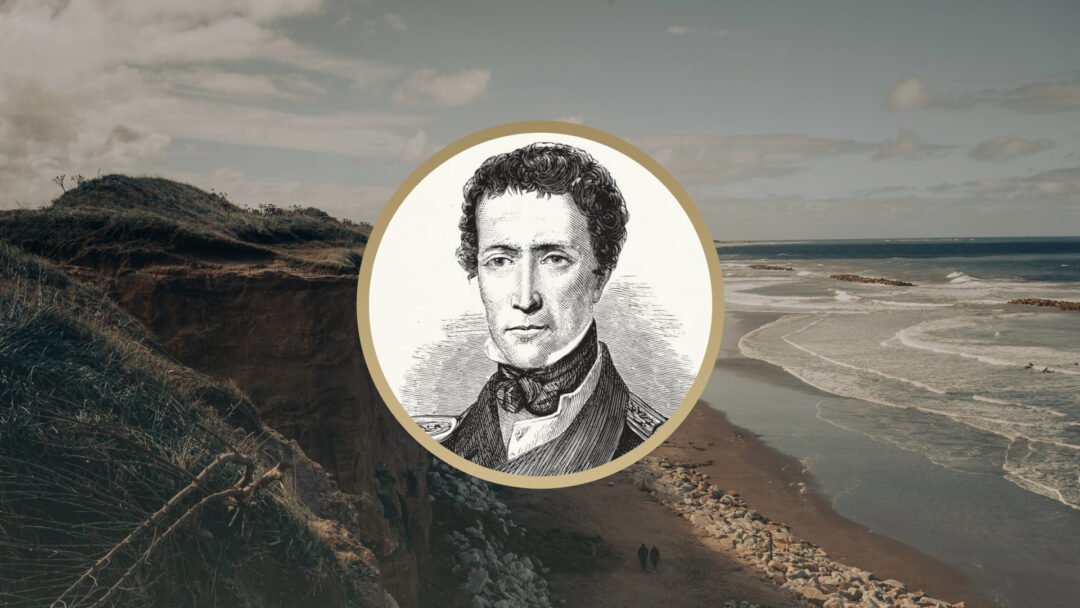Contentment is a rare grace today. Finding men and women who truly submit to and delight in the will of God is like getting a breath of fresh air. Frances Ridley Havergal is one of these fresh breezes among the pages of history, and today we’re going to consider her example of true contentment.
Frances was sixth and last born to William and Jane Havergal on December 14, 1836, in Worcestershire, England. Because her father was the honored reverend of Astley Church, it was in the rectory that France was born, overlooking beautiful grounds with lush trees and gardens. There she grew up with her three sisters and two brothers, advancing quickly in all her studies, including music and poetry. Naturally of sunny temperament, something still different characterized her life. Strangers often said of her, “[Frances] looks so really happy, she must have something we have not.” No portrait could capture her joyful countenance, nor words describe her sunny ways. What was the cause? The Light of the Gospel had been shed abroad in her heart and given her a pure love for the Lord Jesus.
Frances did not always possess this happiness. As with all graces, it took time to learn. When Frances was only eleven, her mother passed away, and the little girl shed bitter and mournful tears. “I did not at all expect her departure,” she wrote in later years, “and shut my ears in a very hardened way to those who tried to prepare me for it; so when it came I was not ready, and there was nothing but bitterness in it to me. I did not, would not, see God’s hand in it, and the stroke left me worse than it found me.”
Haven’t we all felt the same at times? Trials will wreck us rather than strengthen us if our trust is not in the Lord. Until her conversion at age fourteen, Frances struggled spiritually. But at last she was found by the Savior whom she came to love. “Then and there,” she wrote of her conversion, “I committed my soul to the Saviour. . . I did trust in the Lord Jesus.” This was the first step. And after that, we begin to see this beautiful character of submission to God’s will grow and thrive. Let’s look at a few of the ways it was displayed in her life.
First, in illness. The Lord taught her to rejoice in every difficulty as coming straight from Himself. This she stated, after a particularly painful sickness: “It will be a long waiting time yet, ‘at least six months’ says my doctor, before I may write or do anything. But now just see how wonderfully kind He is to me. He has taken my will as I gave it to Him, and now I really am not conscious of even a wish crossing His will concerning me. I seem to be enabled to be PERFECTLY satisfied with whatever He chooses, and it is so nice. That is all of Him, otherwise I should fidget and kick!” Her highest ambitions, during this illness, were not to get better, but “to glorify God and to let my doctor and nurse see it.”
Second, Frances accepted the Lord’s will during disappointments and setbacks in her work. Active by nature, she always threw her whole heart into the Lord’s work, specifically in writing and music. In 1876 she tediously prepared many manuscripts of sheet music for the press, all by hand. Joyfully, she sent it to the publisher. Soon after, a devastating report came. The publisher’s premises had burned down, and all her manuscripts had been destroyed. At least six months of work was lost, as Frances had made no second copy of the music. Yet with her sweet, submissive spirit, she wrote to her sisters:
[I]t is so clearly ‘Himself hath done it,’ that I can only say ‘Thy way not mine, O Lord.’ I only tell you how the case stands, not as complaining of it, only because I want you to ask that I may do what seems drudgery quite patiently, and that I might have health enough for it, and that He may overrule it for good. I have thanked Him for it more than I have prayed about it.
How often do we complain when having to do even small, five-minute tasks over? Let us take this lesson to heart. Shouldn’t we take these setbacks as opportunities to serve the Lord, with a cheerful heart? And to thank Him for continuing to sanctify us with these trials?
Third, Frances was content in singleness. In the course of her life she received several offers of marriage, but turned each one down, because she could not marry a man who did not share the same love for the Lord that she did. Did she struggle? Yes, but she sought the Lord. His love poured out in her life so as to completely satisfy her. Even this area of life was characterized by submission to God’s providence. Her dearest and first love was the Lord Jesus Christ, in whose service she entered wholeheartedly until the day she died. She expressed it well in a poem:
I know the gloom amid the mirth, The longing for the love of earth;
But now I know the love that fills, That gladdens, blesses, crowns, and stills,
That nothing mars and nothing moves—I know, I know that Jesus loves!
Last, we see that she trusted God’s providence even in death. The year of 1879 could not have started better for Frances. She had writing work laid out before her. She had travels planned to Ireland to help with the Lord’s work there. Yet the Lord saw fit to bring her life to a close during her prime, at age forty-two. She had not written the following lines in vain, just five years before:
Just when Thou wilt, O Master, call! Or at the noon, or evening fall,
Or in the dark, or in the light, —Just when Thou wilt, it must be right.
And now, the Master was calling. During the days and hours of suffering, Frances maintained a cheerful, content attitude. “I was going to Ireland next week,” she told the doctor, “but God has upset all my plans, and it’s all right.” The doctor and nurses could see that all of Frances’ expressions of contentment and submission were not spoken carelessly. Her sister Maria wrote, “When we were distressed for her, she whispered, ‘It’s home the fast!’ She told Mary [Frances’ nurse] she was quite sure now she should never go to Ireland, adding, ‘God’s will is delicious; HE makes no mistakes.’”
And thus, her fruitful life came to a happy close. Jesus satisfied her in life and was all the more dear to her in death. Let us take to heart her example and look to our Lord as the source of joy, trusting that whatever He ordains is right. As Frances put it, “Oh, is it not a happy life, ‘the life of simple trust’? One wonders how one lived at all before.”
Written by Katie H.
For further reading:
Havergal, Frances Ridley. The Poetical Works of Frances Ridley Havergal. NY: Fleming H. Revell, 1880.
Havergal, Maria V. G. Letters by the Late Frances Ridley Havergal. NY: Anson D. F. Randolph, 1885.
Havergal, Maria V. G. Memorials of Frances Ridley Havergal. London: James Nisbet & Co., 1880.
This article was reprinted with permission from “The King’s Blooming Rose Magazine,” Volume 12, Issue 1. For more information on this publication for young women, visit kingsbloomingrose.com.









